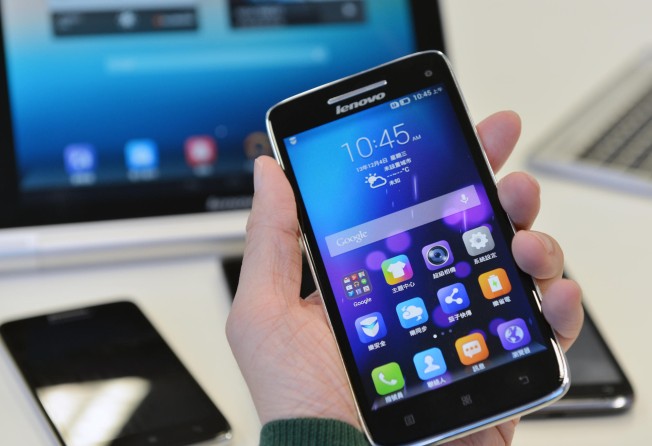Lenovo to streamline smartphone supply chain after Motorola Mobility purchase
After the Motorola deal, the computer giant now faces task of streamlining production processes

Yang Yuanqing, the chairman and chief executive at computer giant Lenovo, declared in 2011 that the company sees the global market for smart mobile devices as "a battle we cannot lose".
"We must win no matter how much money we need to invest," Yang told the South China Morning Post in an interview in San Francisco.
Lenovo, the world's largest supplier of personal computers, proved that commitment last week after landing its biggest-ever acquisition, a blockbuster deal to buy struggling smartphone-maker Motorola Mobility for US$2.91 billion from Google.
Lenovo must now plot the reform of its complex manufacturing supply chain for smartphones in a bid to make it more competitive with those of industry leaders Samsung Electronics and Apple.
The success of the Motorola deal, which is still subject to regulatory approval, will ultimately depend on Lenovo's ability to reshape and quickly integrate the two companies' production supply chains.
Wong Wai-ming, the chief financial officer at Lenovo, said on Thursday that the goal was to "come out with a very good product portfolio that we can deliver in the most cost-effective way".
"We see a lot of synergy between Lenovo and Motorola Mobility, which outsources its smartphone manufacturing," Wong said. He added an "execution plan" would determine how much their production supply chains would be reshaped.
Jack Narcotta, an analyst at Technology Business Research, expected Lenovo to "minimise its supply-chain costs". He said the company must "maximise gross profit from smartphone revenue since its customer base has become global" after the Motorola acquisition.
Lenovo, which operates in more than 160 countries, runs a "hybrid supply-chain strategy" that combines in-house production and partnerships with contract manufacturers. Its company-owned manufacturing facilities are in Argentina, India, Mexico, Hungary, Brazil, Japan, the United States and multiple locations across mainland China.
In recent years, however, the company has bet big on greater in-house production capabilities to help its expansion into smartphones and media tablets. It opened in December an advanced manufacturing complex in Wuhan, Hubei province. The firm has committed about five billion yuan (HK$6.35 billion) in investments on the 200,000-square-metre facility, which houses production lines, sales operations and a research and development centre.
"Wuhan is a very big site that caters to our global business," Wong said. "Whether we move all smartphone production there depends if it makes sense."
Motorola's longstanding outsourcing partner is Singapore-based Flextronics, the world's second-largest electronics contract manufacturer. Under a reported US$75 million deal, Flextronics took over management and operation of Motorola's factories in Tianjin and in Jaguariuna, Brazil, last year.
Narcotta said: "Lenovo will undoubtedly integrate Motorola devices into its manufacturing processes in Wuhan, while keeping the contract manufacturers in the US and China."
Neil Mawston, executive director at research firm Strategy Analytics, said efforts by Lenovo to surpass the global smartphone leaders would take many years.
"Lenovo is a threat to Samsung, but it took Samsung 16 years to overtake Nokia from start to finish. It takes time to build brands, products and retail channels in dozens of countries," Mawston said.